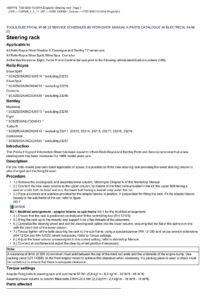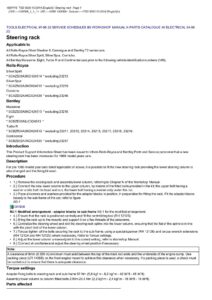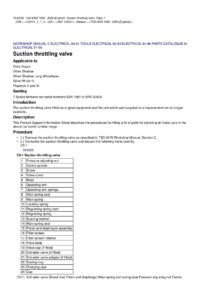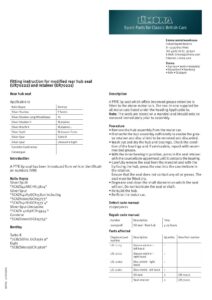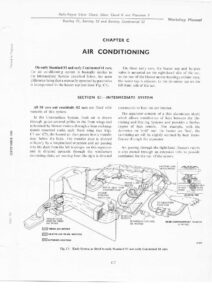Suspension System
The independent front wheel suspension system consists of upper and lower triangle levers, coil springs, and a transverse stabilizer bar.
The system is designed to absorb shock caused by varying road conditions and provides for the adjustment of castor and camber angles.
Front Suspension Data
SI cars: Camber angle is 1° positive, castor angle is zero, toe-in is 0-062 in. (0.157 cm), and pivot pin inclination is 41° at zero camber angle.
S2 cars: Camber angle is 1° positive, castor angle is zero, toe-in is 0-062 in. (0.157 cm), and pivot pin inclination is 44° at zero camber angle.
Standing Height
The standing height should be within the limits stated in the table and variation of 0.025 in. above point *2 should not be exceeded.
Adjustment of the standing height is provided for by the addition or removal of steel washers fitted between the rubber seat on the spring top spigot and the flat end of the coil spring.
Toe-in and Camber Angle
Toe-in is measured with the car on a level surface, and the true toe-in is the average of two readings taken after rolling the car forward and backward.
Camber angle is checked with the car on a level surface, and adjustment is made by moving the upper triangle levers in the slots provided in the upper fulcrum pin blocks (SI cars) or by rotating the eccentric upper fulcrum pin bush (S2 cars).
Manual:
Chat: Powered By VoiceSphere


